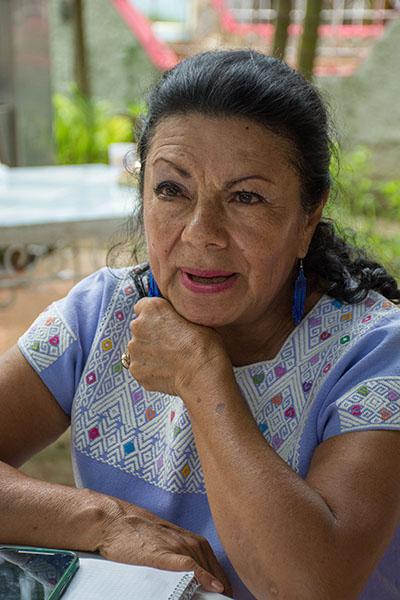
Love for the Cuban Revolution inspires María Teresa López Pérez to travel to the island every year with the Latin American and Caribbean Solidarity with Cuba Brigade, which visits in August and brings together participants from dozens of nations throughout the region.
López Pérez, a retired philosophy professor of 36 years at the University of Guadalajara, is a founder of the program and has participated on 23 brigades to date.
She is also director of the“José Martí” Mexican-Cuban Institute of Cultural Relations, which works to spread the truth about the revolutionary process on the Caribbean island.
I first traveled to Cuba with the brigade in 1978, following a visit by a group of compañeros to participate in the 11th World Festival of Youth and Students, María Teresa López Pérez explains to Granma International, adding that it was then that she realized that it was her duty to bring together more Mexicans to witness the work of this beautiful Revolution with their own eyes.
According to López Pérez, she first learned about the struggle in the Sierra Maestra led by Fidel Castro whilst studying to become a teacher. After the triumph of the Revolution, she began to become more actively involved with Cuba following the founding of the “José Martí” Mexican-Cuban Institute of Cultural Relations in Guadalajara, Jalisco state, in 1968.
The Institute aims to promote information on Cuba through its specialist library, which includes rare literary and press materials.
Meanwhile, López Pérez also noted the importance of the work undertaken by the organization to refute the defamatory media campaigns against progressive governments in Latin America and the Caribbean.
The Institute also organizes activities to celebrate significant dates in Cuban history, demand the return of the territory illegally occupied by the U.S. Naval Base in Guantánamo and supports the Cuban people in their struggle against the criminal economic, commercial and financial blockade imposed by the U.S. for over half a century, just as it demanded the release of the Cuban Five, who served unjust sentences in U.S. prisons for fighting terrorism.
According to López Pérez, the Latin American and Caribbean brigade is a space for collective reflection between people of different nationalities who support social change in their own countries, inspired by the example of Cuba.
She added that “We share similarities, as we were also colonized by Europe, mainly Spain, and have subsequently struggled against the neo-colonial policies in this part of the world.”
The philosophy teacher noted that today actions are directed toward demanding free, quality education and health care coverage, universal employment, decent wages, and access to culture for all, goals attained by Cuba since January 1, 1959. As such, she described the island as beacon of hope for the continent.
“Every year I have come on the brigade,” states María Teresa, “I have met-up with different compañeros from other countries, and we have established a genuine and lasting friendship, united by the need to struggle for peace and social justice.”
She expressed her desire for more time on the program schedule to undertake voluntary work activities, which enable members to make a personal contribution to important sectors of the Cuban economy. However, she also understands that providing information to people unfamiliar with Cuba’s reality is an effective way of building awareness around the real problems facing the nations of the South and transforming them into potential activists willing to mobilize in support of social movements.
Finally, López Pérez noted: “I will continue to come on the Latin American and Caribbean brigade until my final hour, because I have the moral obligation to contribute to Cuba and to humanity.”















